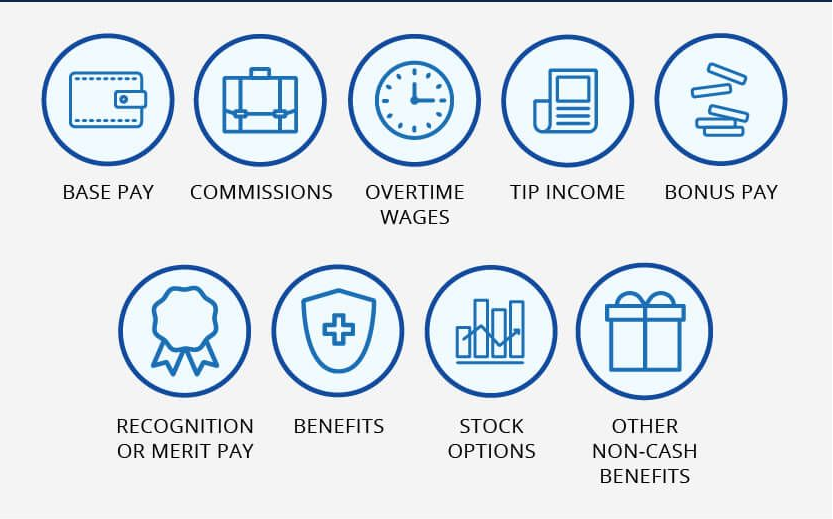The employees have to be compensated for what they do for an organization – hold on folks, besides the salary prerequisites, there are many other things which help in retaining them in the company and sustain their motivation.
Monetary benefits alone do not satisfy employees. You have to think about other ways to pay back your employees through non cash benefits to make them feel they belong.
Motivation is a big factor for consideration when it comes to retaining your employees.
Employees expect fair wages commensurate with their skills, experience and job content. Wages should be ascertained keeping in mind the cost of living in the particular locality.
These should be revised periodically to account for inflation so that the real wages do not go down over the time. Wages must have a system of yearly increments, which should be flexible enough to reward good performance.
In India, the Minimum Wages Act, 1948 provides for fixation and enforcement of minimum wages in respect of scheduled employments.
A tripartite Committee Viz., “The Committee on Fair Wage” was set up in 1948 to provide guidelines for wage structures in the country. Article 39 states that the State shall, in particular, direct its policy towards securing (a) that the citizen, men and women equally shall have the right to an adequate livelihood and (b) that there is equal pay for equal work for both men and women.
These are also termed as indirect compensation that an organization provides to its employees which may include – insurance against accident, travel concessions, medical facilities, subsidized meals, uniforms, housing etc.
The Finance Act, 2005 has introduced a new chapter VII-H, ‘Income-tax on Fringe Benefits’. The Chapter now brings to tax the fringe benefits collectively enjoyed by the employees and which cannot be attributed to individual employees. The Fringe Benefit Tax is to be borne by the Employer.
Employees expect to improve their position in the hierarchy over the time. This improvement in position is called promotion.
1. It immensely helps an employee to feel important and useful to the firm.
2. It enhances his/her status within and outside the organization.
3. Through promotion, he/she looks forward to accomplishing more challenging tasks, including participation in the decision making process.
Out of 440 million workers in India, 93% of the workers are in the unorganized sector.
The contributions made by the unorganized sector to the national income, is very substantial as compared to that of the organized sector.
It adds more than 60% to the national income while the contribution of the organized sector is almost half of that depending on the industry.
In India, only about 8% of workers actually get the benefits available under various labor Acts. The rest 92% work in the unorganized sector, and either are not eligible for coverage.

One main reason why people are reluctant to join small enterprises even at higher salaries is their ‘apprehension’ about ‘job security’.
An enterprise that is able to dispel such apprehension benefits substantially in the long run.
One primary cause of dissatisfaction of workers is ‘the quality of their working life’ which includes
These things may not improve productivity, but will help in preventing job dissatisfaction among workers.
The management must also ensure that cordiality and friendliness is maintained between the workers.
An environment should be created in which the superiors and senior employees and workers develop mutual respect for each other.
The Ministry of Labor, Government of India and Labor Departments of the States and Union Territories are responsible for safety and health of workers.
Directorate General of Mines Safety (DGMS) and Directorate General Factory Advice Services & Labor Institutes (DGFASLI) assist the Ministry in technical aspects of occupational safety and health in mines and factories & ports sectors, respectively.
An employer who is sensitive to the problems of his employees can create a happy and motivated work force.
A small firm has an advantage that the employer can be close to the employees and any complaints and irritants can be solved quickly.
Because of direct control, performance evaluation is more or less instantaneous. Timely praise for good performance helps in motivating the employees.
The attitude of the management should be fair and positive in evaluating performance.
Employees State Insurance Act, 1948
Employees Provident Fund And Misc. Provisions Act, 1952
Factories Act, 1948 58
Industrial Disputes Act, 1947 74
Labor Laws (Exemption From Furnishing Returns & Maintaining
Registers By Certain Establishments) Act, 1988
Payment of Bonus Act, 1965 83
Payment of Gratuity Act, 1972 87
Workmen’s Compensation Act, 1923
The Trade Unions Act, 1926 97
Shops and Establishment Act, 1954 101
Laws related to wages 104
Laws related to child labor 118
Law related to contract labor 129